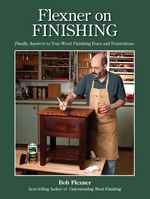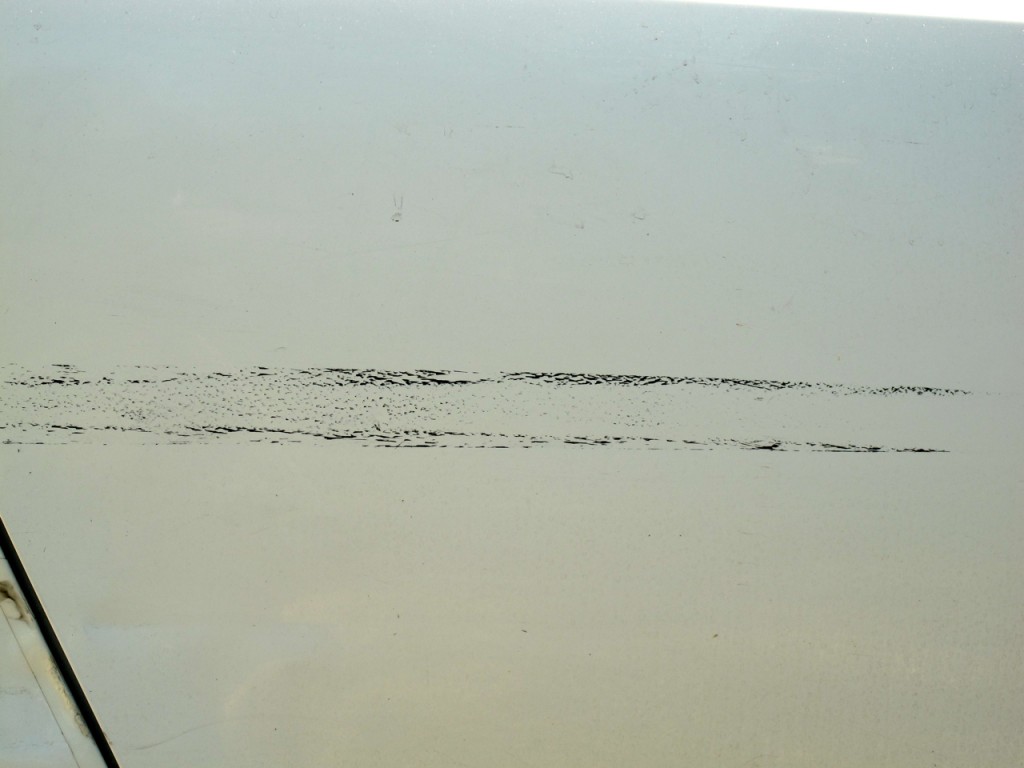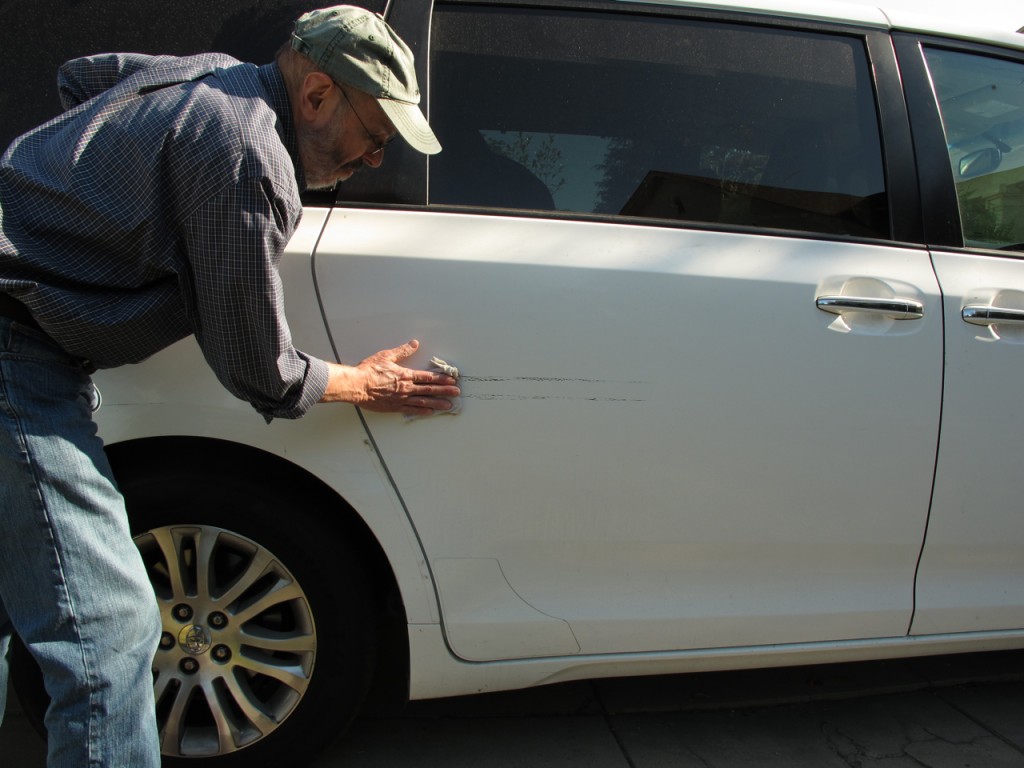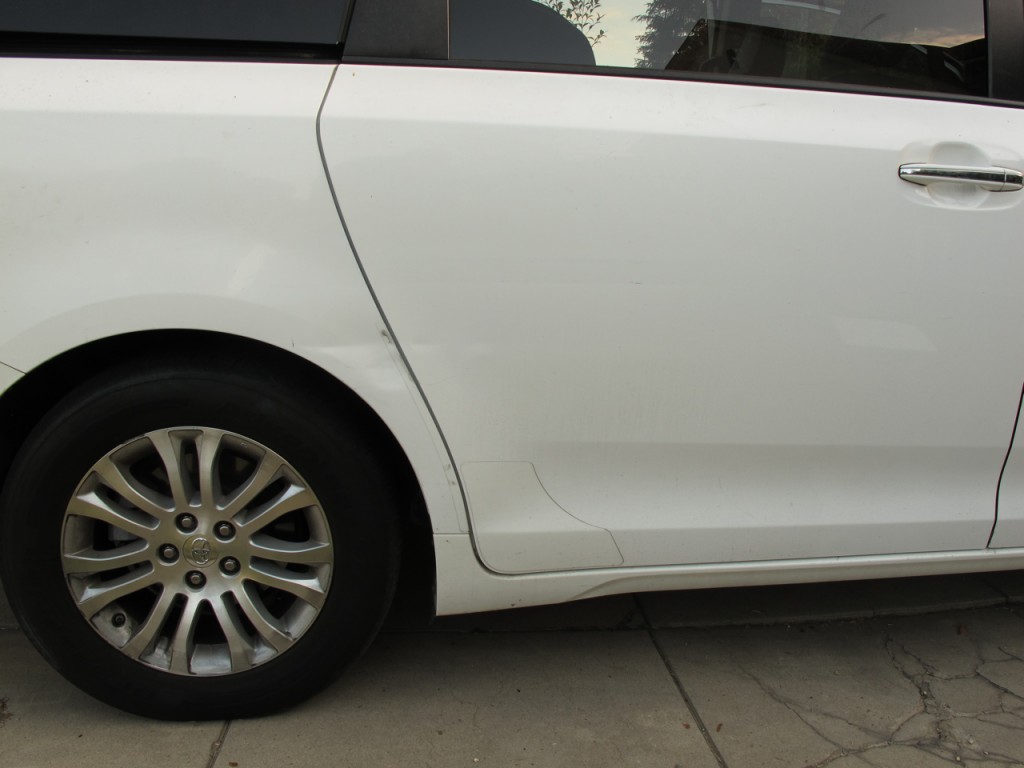We may receive a commission when you use our affiliate links. However, this does not impact our recommendations.
While visiting my son and daughter-in-law, I noticed that she had a pretty ugly black scrape on the side of her car. She had gotten it when she backed out of a tight parking space and rubbed up against the plastic back bumper on a truck.
I decided to win points by removing it.
I had to decide between two methods, abrading it off or dissolving it off. Both came with risks. Abrading would leave scratches and might abrade through the white paint. Dissolving could also dissolve off some of the white paint if I used the wrong solvent. So I ruled out acetone and lacquer thinner, even though I was pretty sure the modern paint and clear coat wouldn’t dissolve in these solvents.
I settled on naphtha because it also dissolves plastics. It required a little more elbow grease, but it is entirely safe to use on any finish except the typical water-based finishes you find at home centers. Naphtha will soften and could damage these finishes.
So here are before, during and after pictures. By the time I realized that I should take some pictures, I had already removed about half of the damage, and I forgot to put my protective gloves back on for the posed shot.
I apologize for this. You should always wear protective gloves when getting solvents on your hands.
 Want to learn more about finishing from Bob Flexner?
Want to learn more about finishing from Bob Flexner?
Check out his book “Flexner on Finishing,” at shopwoodworking.com
Here are some supplies and tools we find essential in our everyday work around the shop. We may receive a commission from sales referred by our links; however, we have carefully selected these products for their usefulness and quality.













Naphtha is not available in California. Any suitable alternative? I see some internet murmurings about using lighter fluid or coleman stove fuel.
I have used lacquer thinner successfully but always worried I was removing clear coat that could lead to future paint problems. I will give naphtha a try… on a very similar white van.